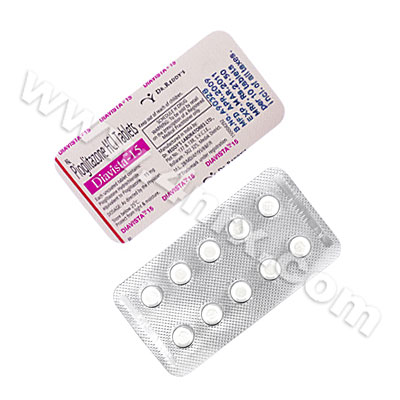 |
Home  Diabetes Diabetes  Diavista (Pioglitazone Hydrochloride) Diavista (Pioglitazone Hydrochloride) |
|
|||||||||
|
Diavista (Pioglitazone Hydrochloride)
What is Diavista (Pioglitazone Hydrochloride) used for? Diavista (Pioglitazone Hydrochloride) is used in the treatment of type 2 diabetes. It belongs to a class of drugs known as thiazolidinediones, which work by helping to raise the body's sensitivity to insulin, a natural substance that helps the body to control the levels of sugar. Patients should be aware that this drug is not used to treat type 1 diabetes and diabetic ketoacidosis. How should I use Diavista (Pioglitazone Hydrochloride)? Patients should take Diavista (Pioglitazone Hydrochloride) tablets orally. The exact dosage varies for each individual, and it is essential to consult your physician prior to taking this drug so that the correct dosage can be prescribed. Adults are sometimes directed to take one tablet per day, with or without meal. Your physician may increase your dosage over time. Patients should be aware that it may take up to 2 weeks for this drug to lower blood sugar, and 2 to 3 months for the full effects to be noticed. Patients should not discontinue treatment unless told to do so by their physician. What are the side effects of Diavista (Pioglitazone Hydrochloride)? Diavista (Pioglitazone Hydrochloride) may cause some side effects to occur, such as:
Patients should note that there are other more serious side effects associated with this drug, such as vision problems, discolored urine, painful urination, severe abdominal pain or persistent vomiting. Please Note Strictly follow all instructions provided to you by your physician or pharmacist while using Diavista (Pioglitazone Hydrochloride). Optimum and safe dosage can differ based on the patient and the condition being treated. As this medication may be unsafe for certain patients, it is essential you always inform your physician if you are pregnant or breastfeeding, as well as if you have any allergies, other illnesses, or ongoing health conditions, and if you are taking any other form of medication, supplements, or herbal products. Immediately seek emergency medical care if you have any allergic or hypersensitive reaction. Common signs of a reaction include hives, swelling, skin rashes, chest pains, as well as trouble breathing or swallowing. 

|
|||||||||||||||||